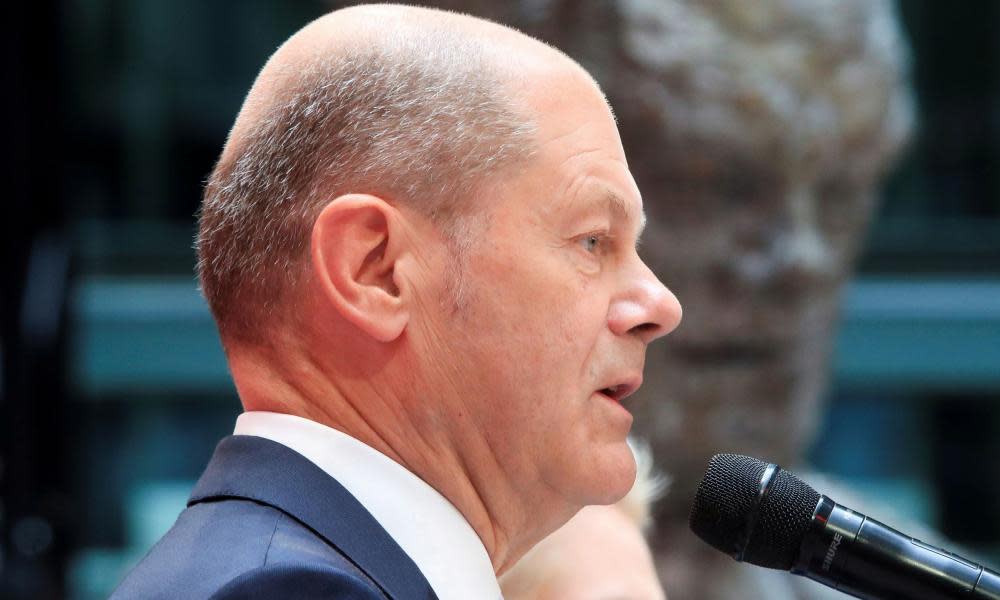Brussels expects poll results to mark German change of direction

Brussels is expecting a gradual break from the era of Angela Merkel on issues ranging from foreign policy to debt as Olaf Scholz, the Social Democratic party (SPD) candidate for German chancellor and frontrunner for the role, said he wanted to “form a stronger and more sovereign European Union”.
As the winners in the German election embarked on what is likely to be months of coalition talks, the European Commission declined to comment on the outcome, which resulted in the left-of-centre SPD taking 25.7% of the vote while Angela Merkel’s Christian Democratic Union (CDU) and its Bavarian sister party the Christian Social Union (CSU) suffered their worst ever national result with 24.1%.
But diplomats, officials and analysts in Brussels said they expected a period of uncertainty to be followed by some important changes in direction from Berlin.
While the results of the coalition talks cannot be confidently predicted, the fragmented state of German party politics will likely lead to a three-way coalition, with Scholz currently tipped to emerge as chancellor.
The Greens were the biggest winners in becoming the third largest party with 14.8%. The economic hawks of the liberal Free Democratic party (FDP), who are less supportive of further fiscal integration at a European level, came in fourth, but effectively flatlined on 11.5%.
default
Jens Geier, the German MEP who leads the SPD’s delegation the European parliament, said: “With an SPD-led government, we now have the chance for a different approach in European politics.
“We can only solve the big challenges of our time when we work at the European level. Under an SPD-led government, Europe would no longer be a marginal part of the German government policy, but move to the centre.”
Jacob Kirkegaard, senior fellow at the German Marshall Fund, said: “I think the outcome of the election was that broadly pro-European parties did very well.
“I mean, it was the far-left and the far-right that lost significantly, and then you had a shift from the incumbent CDU to the more pro-European, at least in fiscal terms, Greens and the SPD. Does that matter? Yes it will, in my opinion, lead to a directional change in German domestic macroeconomic policy.”
As Germany’s finance minister, Scholz has not backed those who have called for a rewriting of the debt rules in the stability and growth pact that enforces budgetary discipline on the member states but which was suspended during the pandemic.
default
But with the Greens, who have championed a change in approach, potentially at the SPD’s side in government, it is suggested there is greater potential for change – although most likely following the French presidential election next April.
“It’s very difficult for me not to imagine that this will make those discussions easier when they eventually start,” Kirkegaard said. “I don’t personally think that happens until the French election, because it’s very difficult for me to imagine that the French [rolling EU] presidency in the first half of next year is going to spend a lot of political capital focus and energy in the middle of a French election campaign.”
Some EU diplomats representing the member states in Brussels have spoken of their concern that the fragmentation in German politics and the formation of an unstable coalition will lead to “more of the same, but worse” from Berlin, in terms of avoiding big decisions, a trait highlighted by Merkel’s critics. “I predict two pretty muted years in Brussels from Germany,” said one diplomat.
Kirkegaard said he believed the election likely marked the end of long German chancellorships, gifting a position of relative strength in key European council meetings of leaders to the French president, Emmanuel Macron, who will be able to boast 10 years in power if he wins next year and sees through his full mandate.
But Kirkegaard predicted a “quite different German foreign policy”. “Both the SPD and the Greens have signalled that they want a much tougher position on on China and Russia,” he said. “And I think therefore that this this will potentially have significant implications on the EU stance.”

 Yahoo Movies
Yahoo Movies 
